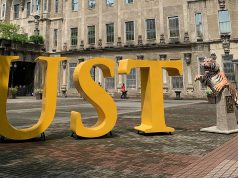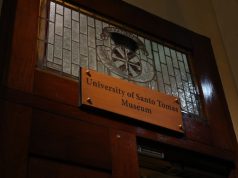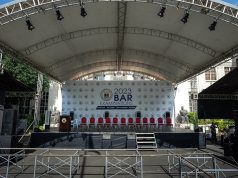
Survey results from two higher education institutions showed senatorial candidate Chel Diokno, a respected human rights lawyer, as the most preferred among students.
San Beda College of Law and the University of Santo Tomas conducted the surveys a few days before the elections on May 13.
The Barrister, the official student publication of San Beda College of Law, posted on Facebook a list of top 12 most preferred senatorial candidates arising from university-wide survey conducted from March 16 to May 8.
The student organ reported that a total of 550 students were asked with the question: “Who among the current senatorial candidates would you most likely vote for on May 13? Please choose 12.”
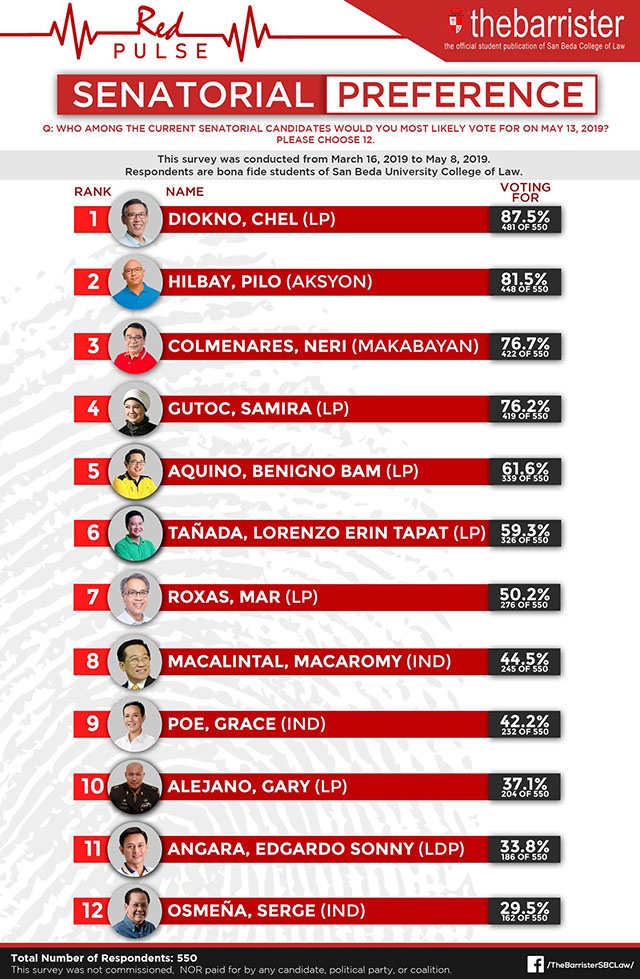
All the members of the Otso Diretso slate critical of the Duterte administration’s top policies landed in the magic 12. Diokno ranked first with 87.5% o r 481 of 550 voter preference and closely next to Florin Hilbay with 81.5% or 448 of 550 who would vote for him.
“This survey was not commissioned nor paid for by any person, candidate, political party, or coalition,” the Barrister reported on May 9.
“This survey does not reflect the views and opinions of the The Barrister, San Beda College of Law, San Beda University, its faculty, staff, and administrators,” it added.
The Varsitarian, UST’s official student paper, and the Flame, the official student publication of the UST Faculty of Arts and Letters, also initiated a survey, this time, for 532 Thomasian students from May 3 to 8.
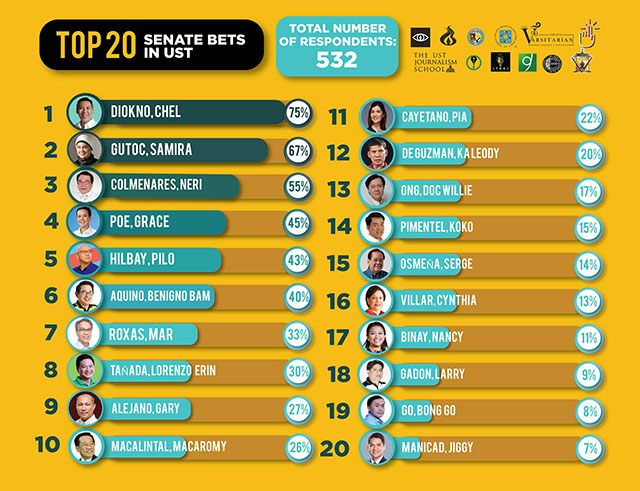
Similar to the previous one, the respondents were also asked to choose their top 12 senatorial bets from the 62 names of aspirants.
The lists likewise showed Diokno in first place with 75% voter preference and followed by Marawi civic leader Samira Gutoc with 67% voter preference.
The rest of the “Otso Diretso” party also were also included in the roster.
The Varsitarian reports more details about the survey:
“Only about a quarter or 24 percent of the respondents were registered voters, while more than half or 56 percent were not registered. Twenty percent of respondents did not answer the question.”
Both pre-election polls provided the information required in Section 5 of the Fair Election Act of the Commission on Elections (Comelec), namely the names of the group or individuals who initiated the survey, number of respondents, methodology or questions asked and the place the surveys took place.
In contrast to Pulse Asia
Senators Cynthia Villar and Grace Poe were the top two most favored candidates by nationwide respondents from May 3 to 6, according to Pulse Asia’s May 2019 pre-election survey.
The so-called winners’ circle is dominated by senatorial aspirants from the Hugpong ng Pagbabago party of presidential daughter Sara Duterte.
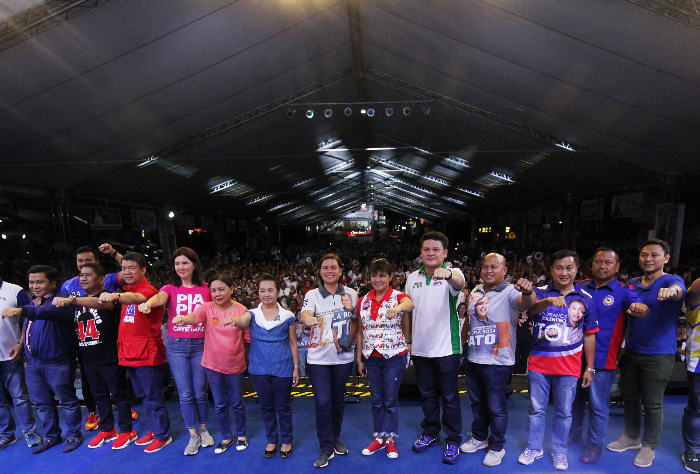
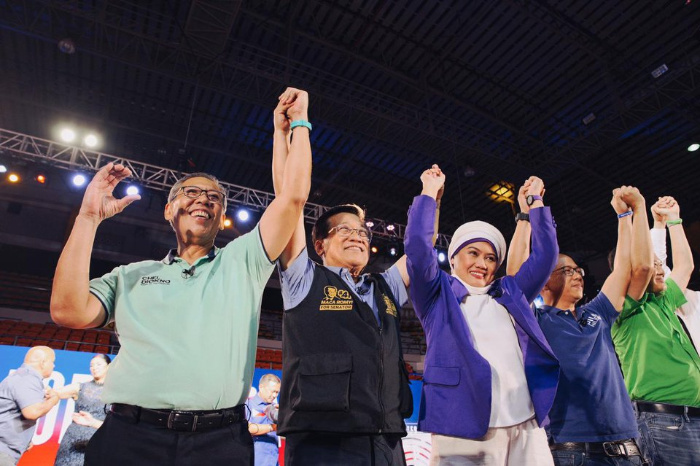
Pulse Asia is established to “monitoring salient socio-economic, political and cultural issues in the minds of the Filipino public.”
This means the polling firm’s scope and methodology in terms of pre-election surveys are more complex than that of educational institutions.
Pulse Asia’s sampling size of 1,800 is scientifically determined to be representative of the country’s population across demographics such as age, socioeconomic standing, education and location.
This is drastically different from a university survey’s sampling size which, while fewer than the pollster’s respondents, only measures a much smaller segment of Philippine population, specifically college-educated, middle class teenagers and young adults based in Manila.
The mock polls neither comprise what could possibly be a “Filipino youth vote” as they discount preferences of those within the same age range and income class in other regions.
Hindi ko po inasahan ang ganitong suporta, pero higit na 40 na mock Senate elections na po sa iba’t ibang unibersidad sa iba’t ibang lugar sa bansa ang pinangunahan natin. Sa ating kabataan, maraming salamat. #25ChelDiokno pic.twitter.com/zlGJ9g5hD3
— Chel Diokno (@ChelDiokno) May 11, 2019
Diokno of Otso Diretso, for example, may have captured the votes of university students in the capital region, but he only ranks 21st-20th in the Pulse Asia survey.
While deemed reasonably accurate within Metro Manila universities, a school-based poll’s results do not necessarily correlate with electoral outcomes for Monday’s midterm vote.




